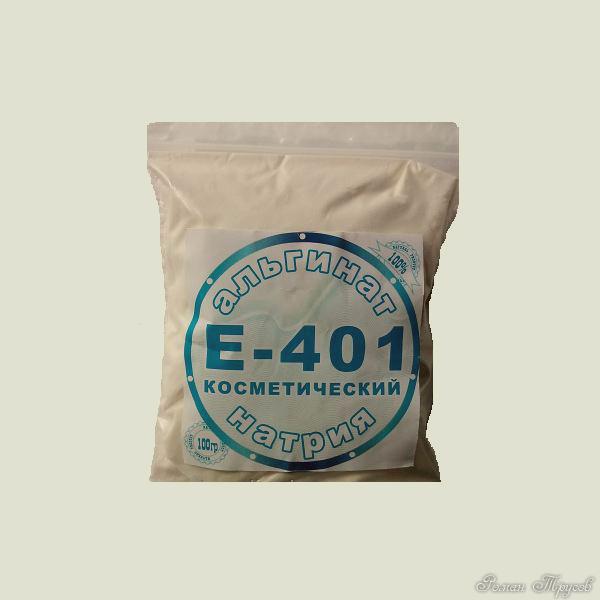Sodium alginate - a substance known as food additive E401. He plays a stabilizing role, preserving the consistency of products and increases their strength. This is a salt of alginic acid. This acid was obtained in a kind of seaweed. Food sodium alginate is in the pellets or plates as a white powder with a yellowish or grayish tinge. Sometimes it contains small fibers - it is connected with the substance of production technology: brown or red algae is treated with an alkali solution. While the resulting solution is then purified, as a result may still be small pieces of algae.
Like many modern nutritional supplements, sodium alginate e401 was discovered in the 19th century. English chemist Stanford Moore during experiments with algae, kelp accidentally got this stuff.
properties
• The reaction of calcium has gelling properties.
• In conjunction with liquids manifests itself as a thickening agent.
• It is readily soluble in water.
• Do not dissolve in alcohol.
Water-in-oil emulsions such as mayonnaise and other salad dressings prepared with this additive is less likely to exfoliate than the use of other thickeners.
Temperature: sodium alginate gel is stable when heated to 150 C, but with prolonged exposure to high temperature, if it is in an environment with low or high pH can melt.
Density: the higher the concentration of calcium alginate, the denser is obtained jelly.
Another popular texture molecular cuisine
This is the main structure, which is necessary for SPHERIFICATION. SPHERIFICATION - one of the most exciting processes in molecular gastronomy, which allows to give a round shape in the most unexpected products.
For this you need sodium alginate and calcium chloride, because it is impossible to create the desired shape in combination with calcium.
Sodium alginate: recipes
With sodium alginate can be done very showy dishes. This is the simplest and most typical example.
Carrot red caviar
You will need:
• 3 medium sized carrots;
• 0.75 liters of water;
• 2,5 g of sodium alginate;
• 2,5 g of calcium chloride;
• 1 ginger root small.
Cooking method:
1. Take a carrot and ginger, wash, peel and chop with a blender.
2. The resulting puree to mix with a glass of water, strain and put in a cool place.
3. Weigh 500 g of liquid, mix it with sodium alginate, and pour into a large syringe.
4. In a separate bowl mix the calcium chloride with the remaining water.
5. Slowly squeeze the mass of a drop in a bowl with calcium. neat eggs should get that then you need to wash and serve immediately.
Effects on the body
As such, sodium alginate does not cause harm to the body. As in the case with any food additives, products containing it, need to be used sparingly, as it inhibits the absorption of calcium, magnesium and iron. Prolonged use leads to undesirable consequences. For the rest, it is harmless. The additive is not digested and excreted from the body through the intestines.
The sodium alginate composition does not contain substances causing allergies or any side effects.
It also has many useful properties, such as he is able to deduce the heavy metals and radionuclides, it helps detoxify the body. Sodium alginate powder can be bought in a pharmacy or order online.
